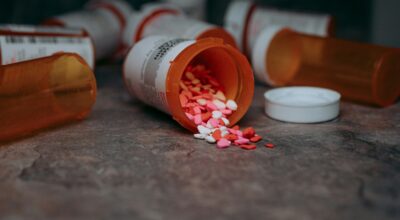Recovering addicts hold solutions to reducing drug epidemic
Published 6:53 am Saturday, July 7, 2018
By KATHY MILES
Boyle County ASAP
Our country has celebrated a lot of birthdays since Ben Franklin made his now famous quote, “An ounce of prevention is worth a pound of cure.” He was referring to fire safety, but the message has probably most often been used in recent years about health care.
Now that the U.S. is admittedly in the worst drug crisis we have ever experienced, prevention is getting some much needed attention. Once people understand the depth of this crisis, they begin to ask the big follow up question: What can we do now to prevent this in the future?
Conducting research on prevention is challenging and unfortunately, runs counter to our quick-fix, sound-bite culture in America. It also doesn’t fit well into the timeframes of elected officials and government budgets. It is difficult to champion and pay for causes whose results may not come for years.
But the fact is that we do have some excellent research on what works and what doesn’t work in prevention of substance use disorders. The National Institute on Drug Abuse publishes evidence-based guidelines for effective prevention programs. These findings include addressing all forms of substance abuse — legal, illegal, underage and prescription use; increasing the protective factors that help kids succeed and reducing the risk factors, such as having an incarcerated parent; tailoring educational programs to the local community’s particular needs and substance use patterns; and including family and school in prevention programs.
This week, men and women in our community’s Shepherd’s House jail diversion treatment program discussed their thoughts about prevention of the problems they have experienced. From their perspectives of now working hard on being clean and sober and restoring their lives at so many levels, they shared some wisdom that we can’t ignore. No, they are not researchers, but their stories and reflections on what could be done differently are strongly consistent with experts in this challenging field.
They all reported little or no alcohol and drug education in school when they were growing up. They criticized the D.A.R.E. programs and recommended that information start in early elementary and continue throughout the middle and high school levels. They asked that more focus be spent on adults helping kids know what to do in place of drugs and alcohol when life’s challenges come, and helping them think ahead about the consequences of bad decisions. They also talked about the after-school hours as a key time that parents who are working need kids to be in a safe and supervised place with adults who can guide them. They said, “keep kids busy”.
Shepherd’s House folks were often critical of their medical care and the overuse of pharmaceuticals. Several had common stories of beginning their addiction with a legal prescription after surgery or an injury. They said it’s good that prescribing patterns are changing, but there’s much more change needed. None of them reported having had a physician ask their family history of addiction, and some had not been told of opioids’ strong potential for addiction at the time they were prescribed. They recommended that youth be taught the importance of sharing family history, learning how to ask questions of their health care provider, and knowing how to recognize signs of addiction to legal drugs.
Many of them had grown up in a faith community, but none of them remembered hearing their churches talk about substance abuse, unless it was to pass judgment. They recommended that faith communities provide a place for open discussion and education, and provide more understanding and less judgment.
The group strongly noted the fact that families need help in knowing what works best to help prevent addiction. They reported that some parents think that just letting their kids drink and use drugs at home is the best approach. It isn’t, they said. It was also noted that families need to better teach and model basic life skills, such as money management, cooking and caring for small children. For some of the Shepherd’s House men and women, now that they are in recovery, they are having to learn these skills for the first time.
At the end of this thoughtful discussion, those present asked to make a plea for something that was a little outside of the prevention focus — they talked about their resumé writing and job applications they are completing. They asked that our community employers be more open to hiring them. They want an opportunity to explain those gaps in their work history. They want to be honest about their addiction, their past bad choices, and their commitment to a productive future.
The Shepherds House “pound of cure” is actually an “ounce of prevention” of future community problems. These voices are important to hear. It’s up to all of us to go beyond listening to action.
Kathy L. Miles is coordinator for the Boyle County Agency for Substance Abuse Policy Inc.






